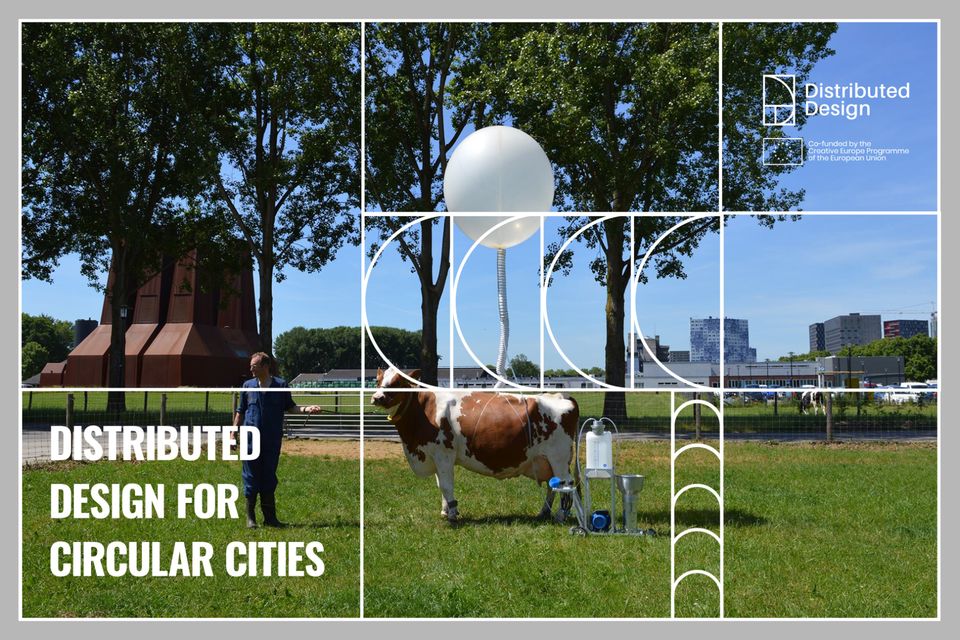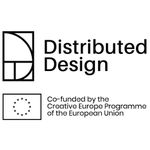Got a great design solution for circular cities? Respond to the open call that Distributed Design is launching together with the City of Amsterdam and get a chance to get your project noticed, meet peers working on sustainable design solutions, and learn from experts in the field!
Toward circular cities
Cities play a central role in the global economy, providing a home to more than half of the global population. They are still very dependent on raw materials to keep their economies going, creating a lot of waste and struggling with pollution and air quality. Cities like Amsterdam, therefore, decided to turn towards a circular economy that turns waste into feedstock and creates liveable and thriving places for their citizens, while staying within the planetary boundaries. The City of Amsterdam wants to half the use of new raw materials by 2030 in order to achieve a fully circular city by 2050, with specific goals for materials like plastics (55% plastic recycling in 2030).
Distributed design and the circular economy
The effect that design has on the environment and climate change is growing in global consciousness. It is becoming more and more evident to us all, that mass-produced goods including furniture and fashion contribute to global emissions, land clearing, opaque supply chains, resource misuse, and waste. Designers have a role to play in engaging consumers with sustainable product alternatives and as such need to have the skills and knowledge to design and practice in alternative ways. Distributed Design proposes an approach to sustainable design that calls on the practices of the Maker community. It explores alternatives to mass-production and aims to up-skill designers of the future through events, resources, tools, networking, and mentorship.
Open call for Distributed Design for Circular Cities
How can Distributed Design make more impact and contribute to the Municipality’s goal to use 50% less virgin raw materials by 2030? For our Distributed Design activities in 2021, we want to include students, Ph.D. candidates, makers, designers, artists, researchers, architects, engineers, (tech)startups, and others in the mutual quest towards circular cities, connecting them to parties like the City of Amsterdam and organisations that share sustainable ambitions on a metropolitan level. Share your story, ambitions, and designs on the Pakhuis de Zwijger stage during our livecasts, connect with relevant parties like the municipality, public utility companies, and industry parties, and further develop your skills during our workshops.
What are we looking for?
Design projects that take the following into account:
- Distributed Design Principles: open source, transparency, allows for adaptation and/or customisation
- Circular Economy Principles: local production, smart manufacturing, responsible materials, product life cycle, and afterlife
- Social challenges and human well-being: both that of the end-user and potential co-producers (socio-economic business models, regenerative systems, etcetera
Application process
Open for entries → Tuesday, January 12, 2021
Submissions Deadline → Friday, February 12, 2021
This call was launched during the first edition of the ‘Groene Transitie’ livecast: Regenerative by Design, which was about designing for regenerative cities with speakers like Ingrid Mulder (Ass. Prof. Designing for Social Transformations) and Malte Hertz Jansen (Foreningen Maker Denmark). You can watch the full live stream back.
Partners
This initiative is organised by Distributed Design – a project co-funded by the Creative Europe programme of the European Union – and Pakhuis de Zwijger, in partnership with the City of Amsterdam. Distributed Design fosters the role of emerging Makers and Designers as part of our new digitised world. It celebrates, supports, and inspires these professionals from across Europe and provides opportunities to support the mobility and circulation of their work to connect them with new, digital markets.








